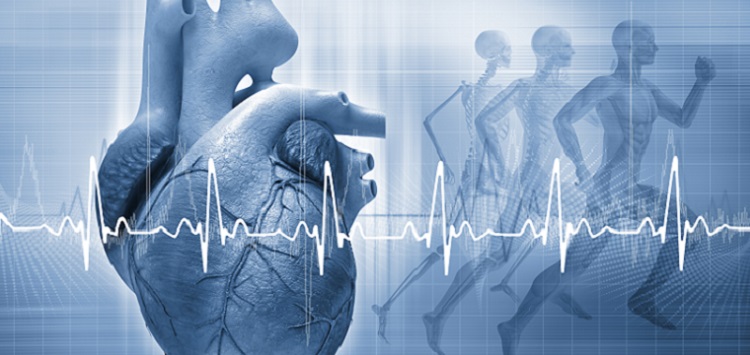Heart health after 60: Cardiology care for golden years
Wiki Article
Comprehending the Value of Cardiology in Modern Medical Care Solutions
Cardiology plays a critical role in contemporary health care, especially as heart condition remains to be the leading reason of death worldwide. Developments in diagnostics and therapy have transformed client care, enabling earlier interventions and enhanced end results. Moreover, the change towards precautionary cardiology equips individuals to manage their wellness proactively. As innovation continues to progress, the assimilation of cutting-edge options may further redefine cardiology's influence on public wellness, motivating a better evaluation of emerging fads and their effects.The Occurrence of Heart Disease and Its Influence On Public Wellness
Although cardiovascular disease remains the leading reason of fatality around the world, its effect extends much beyond individual people to impact public health systems and economies. The high frequency of heart problem places a significant stress on medical care resources, requiring increased financing for rehab, treatment, and avoidance programs. Public health efforts must deal with danger elements such as excessive weight, cigarette smoking, and inactive lifestyles, which add considerably to the increasing occurrence of heart conditions.Moreover, the economic concern associated with cardiovascular disease is tremendous, encompassing not just straight medical costs but likewise indirect expenditures connected to lost efficiency and early death. Communities face challenges in handling these prices, commonly bring about disparities in healthcare gain access to and end results. As the population ages and lifestyle-related risks continue to intensify, the seriousness for reliable cardiology treatments becomes extremely important. Consequently, dealing with cardiovascular disease is not only a matter of private health and wellness however additionally an important public wellness top priority.Advancements in Cardiac Diagnostics and Imaging Techniques
Recent innovations in heart diagnostics and imaging strategies have actually changed the area of cardiology, improving the capability to keep track of and spot heart illness. Techniques such as cardiac MRI, CT angiography, and echocardiography have actually come to be significantly innovative, supplying in-depth images of heart frameworks and functions. These methods enable the very early identification of problems like coronary artery illness, heart failure, and valvular disorders.Moreover, advancements in non-invasive diagnostics, such as wearable modern technology and remote tracking devices, have encouraged individuals and doctor. These tools promote real-time tracking of heart rhythms and other crucial indications, leading to prompt interventions. In addition, expert system is being incorporated into imaging analysis, enhancing precision and effectiveness in medical diagnosis.Advancements in Treatment Choices for Heart Conditions
Current developments in cardiology have actually led to considerable innovations in treatment options for heart disease. These consist of innovative surgical techniques that enhance step-by-step results and arising drugs that provide brand-new avenues for treatment. As the field progresses, these innovations play an essential role in improving person treatment and outcomes.Advanced Surgical Techniques
Advancements in medical techniques have transformed the landscape of cardiology, supplying new expect people with heart disease. Minimally invasive procedures, such as catheter-based treatments, have actually substantially reduced healing times and health center stays. Techniques like robotic-assisted surgical procedure boost precision, permitting doctors to navigate complicated physiological frameworks with better precision. Developments in imaging technology help with real-time visualization throughout treatments, enhancing results. Transcatheter aortic valve replacement (TAVR) exemplifies an advancement in treating aortic constriction, allowing valve replacement without open-heart surgery. Additionally, hybrid approaches that combine catheter-based and medical techniques offer tailored solutions for numerous heart problems. These sophisticated surgical methods not only enhance patient safety and security yet likewise broaden treatment alternatives, underscoring the vital role of innovation in modern-day cardiology methods.Emerging Therapies and drugs
As the landscape of cardiology remains to develop, arising treatments and medicines play a crucial role in boosting treatment options for heart disease. Developments such as unique anticoagulants and progressed lipid-lowering representatives have transformed the management of cardio illness, considerably minimizing client morbidity and death. Furthermore, the growth of gene therapies and regenerative medicine offers appealing opportunities for dealing with problems formerly regarded permanent. Clinical trials are continuously disclosing the effectiveness of these treatments, pushing the borders of conventional therapies. The assimilation of electronic health innovations promotes customized medicine, enabling for customized treatment plans based on hereditary and way of living variables. Collectively, these improvements emphasize the vibrant nature of cardiology, improving person outcomes and redefining standards of care in contemporary medical care.The Duty of Preventive Cardiology in Patient Care
Precautionary cardiology plays an important function in client care by concentrating on the recognition of threat variables that add to cardiovascular disease. With way of life adjustment approaches and very early discovery strategies, doctor can properly reduce the incidence of cardiovascular occasions - Cardiology. This positive technique not just boosts person end results however likewise promotes long-term wellnessThreat Aspect Recognition
While heart diseases stay a leading root cause of morbidity and mortality worldwide, reliable threat variable recognition works as a cornerstone of preventative cardiology. Identifying danger elements such as high blood pressure, diabetes, family members, and hyperlipidemia background is important for early treatment. Health care professionals make use of different evaluating techniques to evaluate these elements, enabling customized preventive actions. Furthermore, understanding an individual's lifestyle selections, such as cigarette smoking and physical inactivity, additionally informs danger analyses. This complete assessment makes it possible for medical professionals to establish personalized care strategies aimed at mitigating dangers. By focusing on risk aspect identification, medical care systems can enhance individual end results and decrease the general worry of heart diseases, eventually adding to improved public health and wellness methods and source allotment.Way Of Living Alteration Strategies
A wide range of research studies highlights the critical role of way of life alteration approaches in reducing heart disease danger. These methods incorporate dietary changes, enhanced exercise, smoking cessation, and weight management. By adopting a heart-healthy diet regimen rich in fruits, vegetables, whole grains, and lean proteins, individuals can lower cholesterol levels and blood pressure. Regular exercise strengthens dig this the heart and improves general cardiovascular health and wellness. Furthermore, stopping cigarette smoking substantially minimizes the threat of heart condition and boosts recuperation prices for those with status quo. Weight monitoring additionally adds to cardiovascular health by reducing other threat aspects such as diabetic issues and hypertension. Executing these way of living transforms not just promotes individual well-being yet likewise works as a cornerstone of preventative cardiology in person treatment.Early Discovery Strategies
Way of life modifications greatly add to lowering heart disease threats, yet they are most efficient when coupled with very early detection techniques. Preventative cardiology stresses the importance of identifying potential heart problems prior to they intensify right into serious problems. Methods such as blood pressure tracking, cholesterol screening, and progressed imaging innovations like echocardiograms play essential duties in evaluating cardio health. Biomarkers and hereditary testing likewise enhance the precision of very early detection, permitting customized preventative methods. Normal cardiac threat assessments encourage health care service providers to intervene proactively, possibly avoiding cardiovascular disease and strokes (Cardiology Jupiter). By incorporating these very early detection approaches into routine treatment, patients can benefit from prompt way of living interventions and targeted treatments, inevitably enhancing end results and enhancing quality of lifeIntegrating Innovation Into Cardiology Practices
As improvements in modern technology remain to improve various areas, the assimilation of ingenious tools and systems right into cardiology practices has actually become vital for boosting individual care and results. Telemedicine systems permit cardiologists to check people remotely, improving access to care while decreasing the concern on medical care centers. Wearable tools, such as smartwatches, enable constant heart rate surveillance, signaling both people and physicians to prospective problems in real-time. Furthermore, expert system (AI) is being utilized to analyze vast amounts of heart information, helping in early medical diagnosis and individualized treatment plans. Advanced imaging techniques, consisting of 3D echocardiography, boost visualization of heart frameworks, causing a lot more accurate interventions. Electronic health documents (EHRs) enhance client details administration, guaranteeing that cardiologists have prompt access to critical data. Together, these technical improvements are transforming cardiology, promoting aggressive management and enhanced health end results for patients with cardiovascular problems.The Significance of Person Education and Involvement
Client education and learning and interaction play a pivotal function in the management of cardio health. By furnishing people with understanding concerning their problems, treatment choices, and way of life changes, health care providers equip people to take an active function in their treatment. This positive strategy can lead to enhanced adherence to suggested medications, dietary modifications, and workout routines, inevitably decreasing the threat of complications.Engagement additionally fosters a strong patient-provider connection, motivating open interaction and trust. When clients really feel educated and involved, they are most likely to voice worries and ask inquiries, which can lead to better medical results. In addition, educational resources, such as workshops or digital platforms, can enhance understanding and promote self-management techniques. In general, prioritizing client education and engagement is necessary for boosting cardio health and wellness, enhancing lifestyle, and lowering medical care prices associated with cardiovascular diseases.Future Trends in Cardiology and Their Potential Impact

Often Asked Questions
What Lifestyle Modifications Can Lower Heart Problem Risk?
The existing question addresses way of life modifications that can greatly lower heart problem threat. Dr Garcia. Taking on a balanced diet, involving in routine exercise, preserving a healthy and balanced weight, taking care of tension, and staying clear of tobacco can notably improve cardio health and wellnessHow Can I Identify Early Signs of Heart Issues?
Recognizing very early signs of heart issues involves surveillance symptoms such as upper body pain, lack of breath, fatigue, and irregular heart beat. Timely recognition of these indicators can trigger necessary medical evaluation and treatment for better results.What Are the Differences In Between Cardiologists and Cardiac Surgeons?
The distinctions between cardiologists and cardiac cosmetic surgeons exist in their roles; cardiologists mainly detect and manage heart disease through non-invasive approaches, while heart cosmetic surgeons execute operations to remedy structural heart issues. Each plays an essential, distinct duty.
Just how Usually Should I Obtain My Heart Health Checked?
The regularity of heart health and wellness checks varies based on private risk aspects. Normally, adults need to undergo analyses each to two years, while those with status quo may require more constant assessments as encouraged by health care specialists.What Function Does Genes Play in Heart Condition Threat?
Genes greatly affects heart disease danger, with familial patterns showing inherited problems. Particular genetics can predispose people to high blood pressure, cholesterol problems, and other cardiovascular issues, highlighting the significance of hereditary screening in examining heart health. Heart illness continues to be the leading cause of fatality worldwide, its influence extends much past private people to affect public wellness systems and economies. Public wellness initiatives need to resolve risk aspects such as excessive weight, cigarette smoking, and less active way of lives, which add substantially to the rising occurrence of heart conditions.Moreover, the financial burden associated with heart illness is tremendous, encompassing not only direct clinical costs however additionally indirect expenditures related to lost efficiency and early death. Preventative cardiology plays a vital function in person care by focusing on the recognition of danger variables that add to heart condition. Artificial intelligence (AI) and device discovering are improving diagnostics and individual surveillance, making it possible for very early discovery of heart conditions. The distinctions in between cardiologists and heart doctors exist in their roles; cardiologists primarily diagnose and manage heart conditions via non-invasive approaches, while heart doctors execute medical treatments to remedy architectural heart problems.Report this wiki page